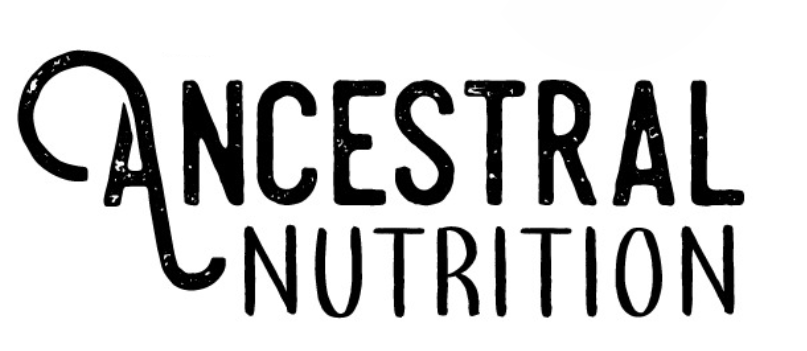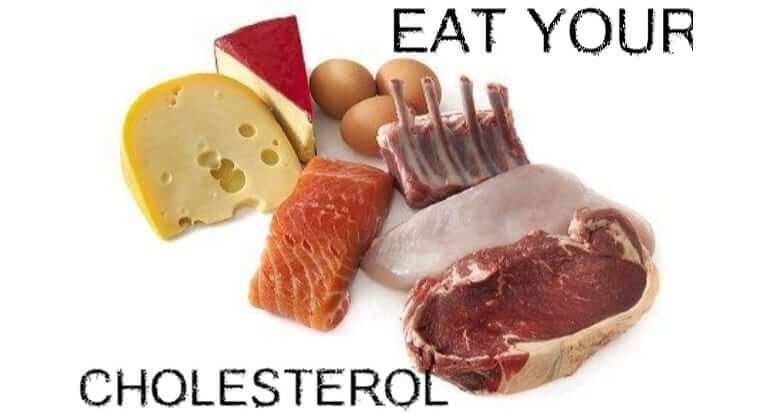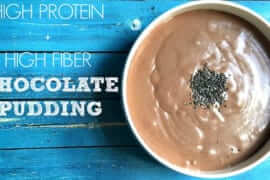Fat bashing began in the early to mid 1900s. Prior to this, animal fats in the form of butter, lard, and tallow were largely consumed without any epidemic of heart disease. It was not because doctors did not have a diagnosis for heart disease at that time – they absolutely did. It was because saturated fat actually protects, nourishes and allows our bodies to thrive. So let’s explore how cholesterol is so beneficial.
Cholesterol is in every cell of the body. As for cell membranes, roughly 50% are made up of saturated fat and the brain is at least 60% fat. Cholesterol helps the molecules of the cell membrane to maintain durability, keep the environment suitable for proteins in the membrane and maintain its fluidity. Seems pretty important for our cells, huh? A proper intake of cholesterol also regulates the steroid hormones. As for steroid hormones, there are five: glucocorticoids, mineralcorticoids, estrogens, androgens, and progestins. Glucocorticoids, in addition to having multiple effects on fetal development (preggo ladies need cholesterol!) and proper maturation, also plays a crucial role in glucose metabolism. This means that glucocorticoids play an important role in regulating blood sugar metabolism (which is important with the growing rate of obesity and diabetes). Cholesterol is the precursor for our steroid hormones, so let’s take a look at each.
Glucocorticoids have potent anti-inflammatory and immunosuppressive properties. This is particularly evident when administered at pharmacologic doses, but also is important in normal immune responses. As a consequence, glucocorticoids are widely used as drugs to treat inflammatory conditions such as arthritis or dermatitis, and as adjunction therapy for conditions such as autoimmune diseases. Source
Mineralcorticoids regulate the balance of water and electrolytes in the body. Improper function of mineralcorticoids can cause high blood pressure and/or Addisons Disease.
Estrogen is the main sex hormone in women and also the reason us ladies have smoother skin and less hair than our dudely counterparts. Estrogen regulates our menstrual cycles and prepares our bodies for pregnancy (another reason a low-fat diet is so dangerous to pregnant women). Estrogen also plays a part in controlling cholesterol, it limits the buildup of plaque in the arteries.
The net effect of estrogen’s action on liver cells is to increase the amount of HDL cholesterol and to decrease the amount of LDL cholesterol. By increasing HDL and decreasing LDL, estrogen helps to lower the risk of heart disease.
Androgens control the maintenance and development of male parts. Testosterone is an androgen and therefore proper regulation drives the male libido, metabolic processes and proper sperm formation. The role of testosterone is less in a woman, but it helps us maintain our strength, energy, and our libido too!
Progestins prepare and maintain the body during pregnancy. According to Tulane University,
Progestins are a group of chemically similar steroid hormones. Steroids are a special kind of fat molecule with a four-ringed, carbon atom backbone or core, like their cholesterol predecessor.
Progestins are absolutely necessary to carry a baby to term, and to do it in a healthy manner. Progestins also mediate the menstrual cycle.
Cholesterol is involved in an endless amount of bodily functions. To summarize: proper brain function, menstrual function, fetal development, proper function of the nervous system, mood stability, sperm development, reducing arterial calcification, bone growth and brain development. This is why it is so crucial for babies and children to have an abundance of saturated fat.
The body makes 1000-1400 mg of cholesterol each day (much, much more than the USDA recommended daily intake). When we eat more, the liver makes less and thus has to do less work. It spends more time executing other essential functions, like detoxifying the body. When we eat less cholesterol, the liver has to expend its energy producing more cholesterol. As for fat turning to fat in your body, fat actually boosts metabolic function. It is not about the quantity of fats eaten, but the quality. High quality animal fats are ideal, while vegetable oils should be avoided like the plague. It’s not fat that causes weight gain, it’s refined carbs, sugar and processed foods (these raise triglycerides). Most people fail to realize that cholesterol rich foods are also the most nutrient dense. Generally speaking, they are the highest in vitamins A, E, D, K, B12 as well as calcium, iron, zinc and a host of other vitamins and nutrients. There are nutrients found exclusively in animal foods that happen to be high in cholesterol, that cannot be obtained from plant foods, specifically B12, vitamin D, as well as the true vitamin A (retinol) and the absorbable form of iron.
So for all of these functions to properly take place, we must have an appropriate intake of cholesterol. In short, eating cholesterol will not cause heart disease or obesity. There is literally no convincing evidence of this, or that a high saturated fat intake is linked to heart disease. Furthermore, high cholesterol is not even a strong risk factor for heart disease. Ever heard of the French Paradox? Despite eating some of the highest amounts of saturated fat, the French have some of the lowest levels of heart disease, along with the Eskimo, the Maori, the Massai, and basically every traditional culture in existence.
BRING ON THE FAT!




